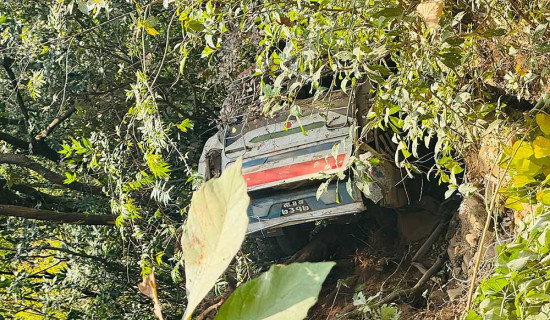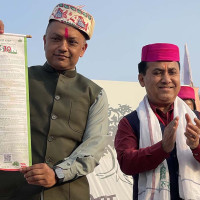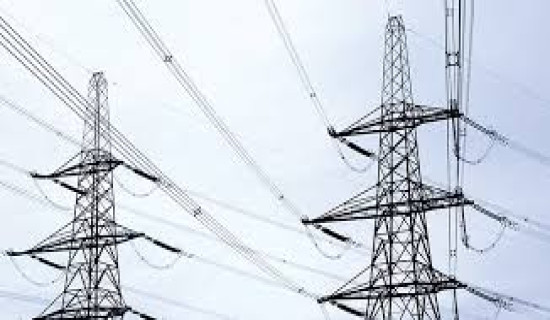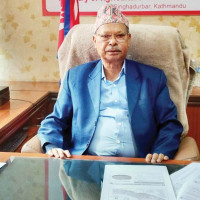- Thursday, 19 February 2026
Nurture Fruitful Coalition Culture
Forming a coalition government has become a compulsion, not a choice, in Nepal, thanks to the country’s mixed electoral system in which a single political party finds it difficult to secure a majority in the parliament. Nepal’s federal, republican constitution envisions an inclusive democracy. The spirit of the constitutional framework implies that it is only with the alliance of multiple parties that this monumental goal can be realised. To nurture a coalition culture, the political parties require ethical values, integrity and a fair power-sharing deal. If the parties strike a power-sharing agreement based on their electoral agenda and promises, their coalition government is likely to be successful and complete the stated terms in office. But an alliance merely based on the distribution of posts, resources, and the state’s spoils makes their partnership fragile.
Nepal’s political parties have enough experience of working under a coalition government, be it the post-1990 People's Movement or in the aftermath of the promulgation of the present statute in 2015. However, the experiment with coalition governments is marked by brinkmanship and a kind of bluster involving the ruling parties’ leaders, causing their premature collapse. The dearth of democratic culture and respect for each other’s genuine concerns is largely attributed to the unintended political mishaps that have only generated public detest for politics and frustration with the leadership.
Coalition contours
Following the three-tier polls in 2022, Nepal witnessed a series of coalition governments. At least three coalition governments were formed. The present Nepali Congress-CPN-UML coalition came into existence after the collapse of two previous ones. The two largest parties joined hands to form their coalition government after they felt that they were made to play second fiddle to the third largest party – CPN-Maoist Centre, though the detractors point to other factors for the failure of coalition governments. The NC-UML alliance holds a two-thirds majority in the House of Representatives (HoR). Still, some heavyweights from the two parties are not on the same page when it comes to the performance of the government.
Formed in mid-July last year based on a seven-point agreement, it is a strong government capable of delivering stability, good governance and prosperity. But Prime Minister KP Sharma Oli has often clarified that the government will run till the next elections and he will hand over the premiership to Nepali Congress president Sher Bahadur Deuba. Main opposition CPN-Maoist Centre continues to give a psychological jolt that the current government will fall anytime soon. Maoist leaders have been publicly stating that their party is in touch with the NC for a change of the guard. This sort of ‘rumours’ has affected the functions of the government.
The NC and UML are not only the largest parties but also competitors in national politics. Both are determined to grab lucrative posts. Similarly, conflict between the PM and ministers was seen in their working style. This was evident in the sacking of a state minister and the resignation of an education minister. There has also been a tendency to get credit for good works but point the finger at others when there is controversy besetting the government. What is more worrying for the PM is that NC stalwarts are not defending the government. Quite the contrary, its anti-establishment faction is heavily criticising the government over its performance.
As the media reports go by, the two ruling parties are crossing swords over the appointment of the Governor in Nepal Rastra Bank and the Chief Commissioners in two commissions related to transitional justice. NC’s two General Secretaries opposed the sacking of the managing director of Nepal Electricity Authority, Kul Man Ghishing, who was to retire from the post in four months. It is believed that the two parties have differences regarding the formation of a committee to investigate into Tinkune incident, in which two persons lost their lives and private and public properties were destroyed in arson. The growing discord has given space for the opposition to speculate on the future of the coalition.
Meanwhile, the government has brought its Policy and Programmes for the fiscal year 2082/83 B.S. on Friday in line with the seven-point deal, the very basis of the coalition. It has included PM’s priorities that he presented while taking the vote of confidence from the parliament. He stressed completing the ongoing projects in time instead of introducing the new ones, increasing foreign trade, ending poverty and hunger and maintaining good governance. While emphasising economic discipline, it seeks to restructure scores of state enterprises and terminate those unnecessary and profligate ones.
Statute amendment
One of the important features of the seven-point accord was the amendment to the constitution, but the government ran the gauntlet for not taking any concrete initiatives to review the charter. One reason behind the delay in statute review is the coalition's lack of a two-thirds majority in the Upper House. However, the amendment to the statute at the wish of the ruling alliance may not make the process inclusive and acceptable to all parties. Therefore, broad-based consensus must guide any review of the charter. The coalition has tried to win the confidence of the opposition and other parties by committing itself to the statute revision based on consensus in the policy and programmes.
In the policy document, the government has adopted a harsh approach to the 'reactionary', 'revivalist' and 'anarchist' elements intent on dismantling the edifice of the 2015 constitution. This is in apparent reference to pro-monarchy forces that took to the streets recently. But what is more important is to examine the factors that have increased supporters of monarchists in the last decade. If the government proves its mettle in implementing the ambitious plans unveiled in the policy and programmes, this will spur economic growth, create jobs, and enhance good governance and delivery of services and goods. This will, in turn, contribute to institutionalising the constitution, overcoming public disenchantment and minimising the threat of royalist forces.
(The author is Deputy Executive Editor of this daily.)









-original-thumb.jpg)






